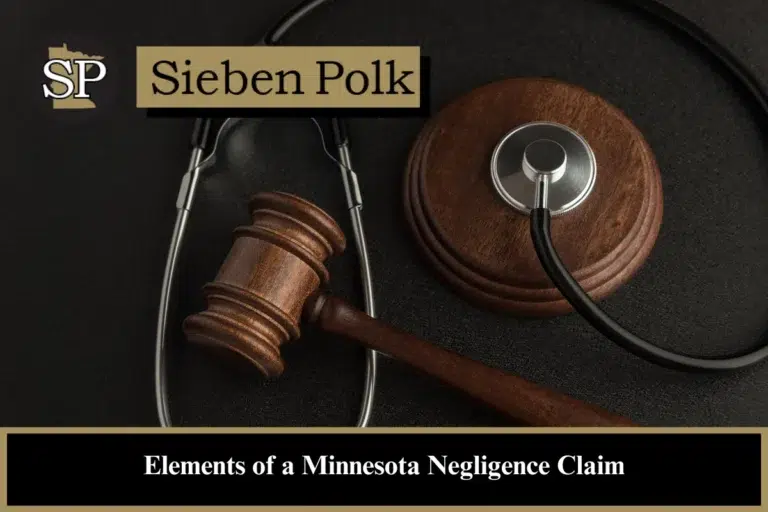If you’ve been injured in an accident caused by someone else’s carelessness, understanding the elements of a negligence claim is crucial. A well-prepared negligence claim can help you recover the compensation you deserve for your injuries. This page explains the key elements of a negligence claim and how they affect your case.
What Is Negligence?
Definition of Negligence
Negligence refers to the careless actions or inactions of a person or entity that leads to a breach of their duty of care. For example, if a driver chooses to drive under the influence of alcohol, they are breaching their duty of care, putting others at risk.
Common Types of Negligence Claims
Negligence claims can arise in various situations, including:
- Medical malpractice
- Failure to maintain property
- Defective products
- Driving under the influence of alcohol or drugs
- Texting and driving
- Senior living abuse
If you have been injured due to someone else’s negligence, you may have a right to compensation. Contact our experienced personal injury attorneys to discuss your case.
The 4 Key Elements of a Negligence Claim
To successfully establish negligence, four elements must be proven. These elements form the foundation of a personal injury claim.
Duty of Care
In most negligence cases, the responsible party must owe you a duty of care. This means they are legally obligated to act in a way that avoids harm to others. For instance:
- A property owner owes a duty to visitors to keep the property free from hazards.
- Drivers owe a duty to other motorists to operate their vehicles safely.
Breach of Duty
A breach occurs when the responsible party fails to meet their duty of care. Examples include:
- Texting and driving, which increases the risk of accidents.
- Medical professionals failing to diagnose a condition, which can harm the patient.
To prove a breach, it’s important to understand the specific facts of your case and the risks created by the defendant’s actions. Consulting with an attorney can help clarify this part of your claim.
Causation: Linking the Breach to Your Injuries
How Causation Works in Negligence Claims
Causation is crucial in a negligence claim. You must demonstrate that the injury or damage you suffered wouldn’t have occurred if the other party had not breached their duty of care. For example, if a driver’s distracted driving caused your car accident, you must prove that their failure to drive safely directly caused your injuries.
Damages in a Negligence Case
Types of Damages You Can Claim
Damages refer to the losses or harm you’ve suffered due to the defendant’s negligence. They can be classified as:
- Economic damages: Tangible losses, such as medical bills, lost wages, and property damage.
- Non-economic damages: Subjective losses, such as pain and suffering, emotional distress, and loss of enjoyment of life.
Punitive Damages
In some cases, a court may award punitive damages to punish the defendant for egregious actions and deter future harmful behavior.
How Sieben Polk Law Can Help with Your Negligence Claim
At Sieben Polk P.A., we provide personalized legal services tailored to your unique situation. With over 50 years of experience, our team is committed to securing fair compensation for victims of negligence.
Why Choose Us?
- Proven track record of successful negligence claims.
- Decades of experience handling personal injury cases in Minnesota and the Upper Midwest.
- You don’t pay unless we win your case.
Free Consultation
Contact us today to schedule a free consultation. Our skilled personal injury lawyers are ready to evaluate your case and help you understand your legal options.



